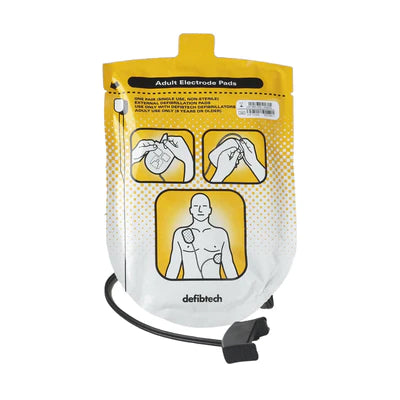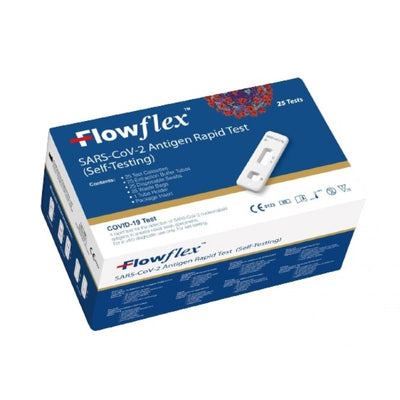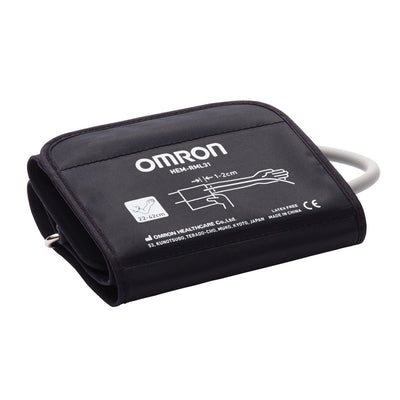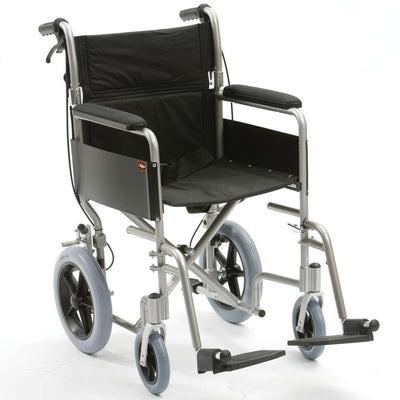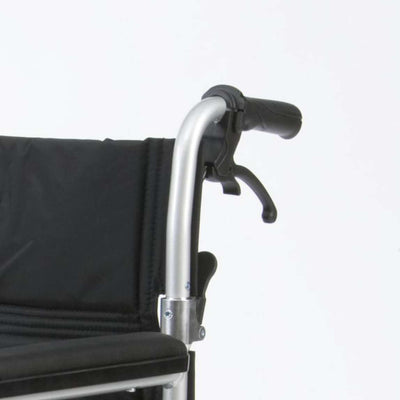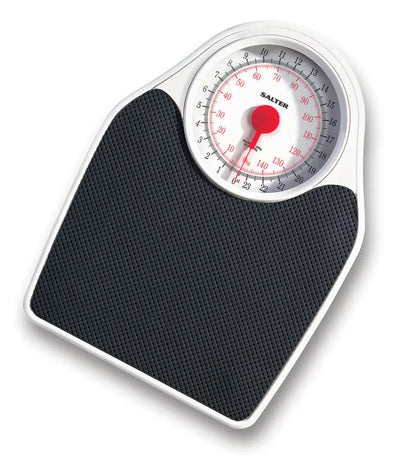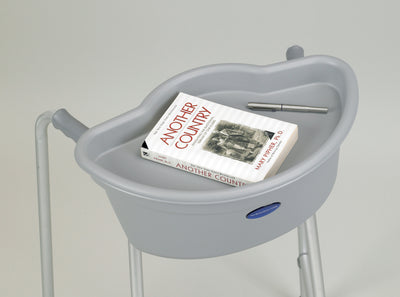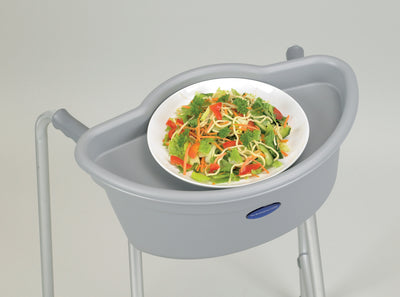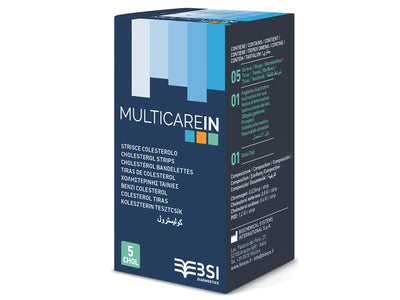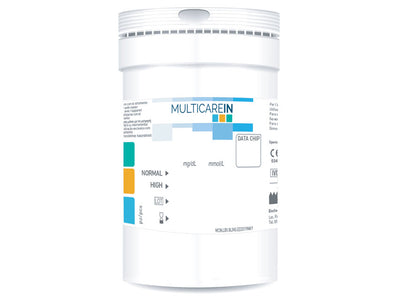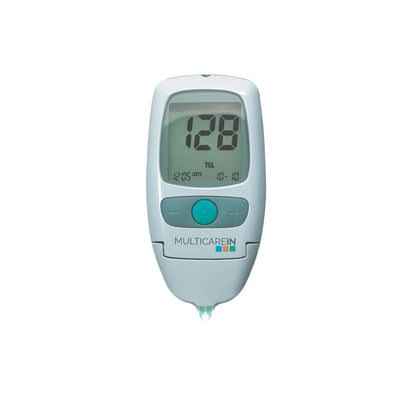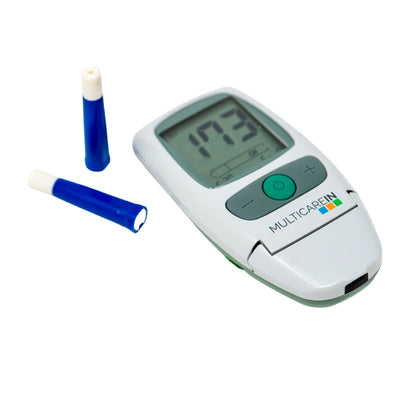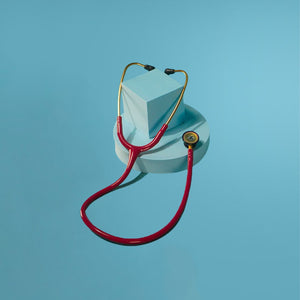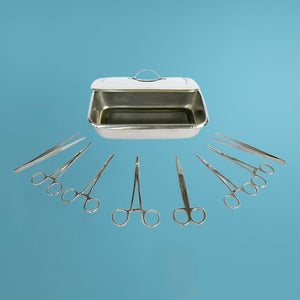Blogs
Knowledge is power in facing cancer – awareness is the first step towards hope and healing.
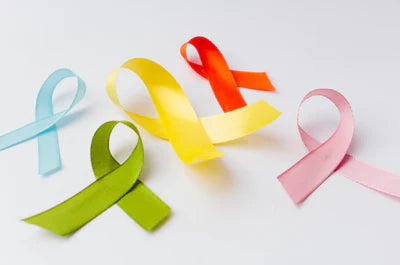
The Cancer Symptoms You Should Never Ignore
28.11.2023
A single event can transform our lives in an instant. It could be as simple as you waking up in the morning to a minor inconvenience or fleeting pain. The discomfort persists, and more symptoms start emerging. Your mind begins to race, and a nagging worry settles in. Could it be something serious? The doctor then confirms your worst nightmare. You have received a cancer diagnosis.
Cancer causes a seismic change that necessitates strength, support, and an unrelenting drive to conquer. This may range from having a physical toll on the body to the emotional upheaval and devastating impact on relationships. The effects of cancer ripple through every aspect of a person's existence, leaving no facet untouched.
For centuries, there’ve been arguments and discussions about the phrase “Knowledge is Power”. However, when it comes to our health, knowledge empowers us by providing us with information and understanding, which is true power. This blog post will take you through cancer symptoms to watch out for as well as crucial fundamental knowledge you'll need to handle the condition.
What is cancer?
Let’s take you back to the basics. Our bodies are made up of tiny building blocks called cells, and they usually grow and divide in a very organised and controlled way. Sometimes, something goes wrong with these cells. They start to grow too much and divide too quickly, creating a big group of abnormal cells called a tumour.
These tumours can cause problems in our bodies and make us feel sick. Simply put, cancer is a word used to describe a group of very bad diseases that can happen in our bodies when there are abnormalities in the division of cells in our bodies. Cancer can happen in different parts of our bodies, like our lungs, skin, or even our blood. It's important to watch out for symptoms of cancer early so that doctors can help us get better.
Types of Cancer
Here are some of the most common types of cancer known:
Breast Cancer: Ladies, listen up! Breast cancer is like an unexpected guest that arrives uninvited and sets up camp in your breast tissue. This isn't meant to scare you; rather, it's meant to make you aware of how it affects you. One major misconception regarding this type of cancer is that it affects just women. That is the biggest delusion ever. There isn’t cause for alarm, however, because early detection and awareness can help you fight and beat cancer.
Lung Cancer: The lungs play a vital role in supplying oxygen to the body and expelling carbon dioxide. Sadly, harmful substances like tobacco smoke can attack them, leading to the development of lung cancer. Prevention, however, and a smoke-free lifestyle, keeps our lungs healthy.
Prostate Cancer: Guys, this one's for you! It's like a secret mission happening in your prostate gland. The prostate is a tiny walnut-shaped organ found directly below the bladder. The prostate gland is important in the male reproductive system because it produces a fluid that feeds and transports sperm. Prostate cancer may not cause any symptoms at first, so regular checkups are the key to catching it early.
Leukaemia: This is like a superhero battle happening inside your body, where the mighty cells that protect you, called white blood cells, start multiplying uncontrollably and invade your bone marrow. Unlike their usual role of defending the body against harmful invaders, these mutated white blood cells lose their ability to function properly and overcrowd the bone marrow, impeding the production of healthy blood cells.
Melanoma: Sun-loving folks, here's one for you! Melanoma is a type of skin cancer that arises due to the uncontrolled growth of pigment-producing cells called melanocytes. These cells are responsible for giving colour to our skin, hair, and eyes. While melanoma can occur in any individual, it is particularly associated with sun exposure and is often found on areas of the body that receive the most sunlight. Remember, SPF and shade are your best friends!
These are just some of the most common types of cancer available, among a variety of others. Each one has its specific characteristics and challenges. Raising awareness and supporting research can help in the fight against cancer.
Early Symptoms of Cancer to Look Out For
As with every ailment, there are always signs and symptoms that accompany it. Understanding these symptoms can help with early detection and, ultimately, early treatment commencement.
Here are some early signs and symptoms of cancer to look out for:
Unusual lumps or bumps: Sometimes, our bodies can develop strange lumps that don't go away. If you notice any weird bumps on your body, especially if they're getting bigger or causing pain, it's important to go to the hospital to have them checked.
Changes in your body: Our bodies change as we grow, but sometimes changes can happen that don't seem right. For example, if you suddenly start losing weight without trying or if you notice unusual bleeding, it's important to talk to someone who can help.
Persistent pain: If you have a pain that won't go away, like a tummy ache or a headache that lasts for a long time, especially one that becomes persistent, you have to see your doctor. They will help you figure out if it's just a normal pain or something that needs more attention.
Feeling really tired: It's normal to feel tired sometimes, especially after a long, busy day. Nonetheless, if you're feeling extremely tired all the time, even when you're getting enough sleep, it's important to check in with your doctor. They can help you figure out why you're feeling so tired and find ways to make you feel better.
Remember, it's always a good idea to speak with or visit a physician if you observe any of these symptoms or anything else that troubles you. They can ensure that you receive proper care, if necessary, and assist you in understanding what is happening. It's plausible to request assistance when you require it since your health is vital.
Other Signs That Come With Cancer
While the person affected reports symptoms as subjective experiences or sensations, professionals can observe or measure signs as objective indications of a medical condition.
The subheading above discussed the symptoms. Now, we will be relaying signs that we should look out for:
Unexplained weight loss: If you're losing weight without trying, especially if it's a significant amount, it's important to consult your doctor.
Persistent cough or hoarseness: If you have a persistent cough or your voice changes and becomes hoarse for an extended time period, you should seek medical attention.
Changes in bowel or bladder habits: You should seek medical assistance if you notice any unexpected changes in your bathroom habits, such as blood in your stool or urine, prolonged constipation or diarrhoea, or frequent urination.
Difficulty swallowing or persistent indigestion: If you have difficulty swallowing food or if you often get indigestion or heartburn that does not go away with over-the-counter medications, you should seek medical help.
Your healthcare provider can evaluate these signs and provide appropriate guidance or the necessary tests to determine the cause and provide appropriate care if needed.
Practising Self-evaluation
Self-evaluation is a powerful tool in the battle against cancer. It's like having your own superhero radar, helping you detect any unusual changes in your body.
Getting familiar with your body's normal patterns and paying attention to any potential warning signs helps you become an active participant in your own health.
It could range from checking for lumps or bumps during breast self-exams to being mindful of changes in your skin, weight, or energy levels. Self-evaluation empowers you to take control of your well-being.
Keep in mind that you are your body's best advocate, and that self-evaluation enables you to identify any possible problems early and to seek medical assistance as soon as necessary. So pay attention to your body's cues as you set off on your road to self-discovery and cancer monitoring. You've got this!
When to Seek Medical Attention
We must understand that experiencing these signs and symptoms does not automatically mean you have cancer. However, it is essential to take them seriously, and if you are concerned, consulting a healthcare professional promptly is crucial. Early diagnosis and intervention offer the best chances for successful treatment and recovery.
To wrap this up, recognising the signs of cancer and seeking timely medical attention can be life-saving. Regular screenings, self-examinations, and awareness of your body's changes are vital to detecting cancer at its earliest stages.
Remember to spread awareness and share this valuable information with your loved ones, as early detection truly makes a difference in cancer outcomes. Stay vigilant, stay informed, and prioritise your health.
At Mediworld, we are aware of the importance of leading a healthy lifestyle and the benefits it can provide. We are here to serve you as a dependable supplier of medical and home-care goods as you journey towards better health. With more than 40 years of expertise, we can help whenever you need it.
Need further assistance? If you have any inquiries, don't hesitate to get in touch with us.
To stay updated, don't forget to read our informative health blogs.
Learn More Now

3 Key Symptoms of Bowel Cancer
24.10.2023
This week the death of bowel cancer sufferer and charity campaigner Dame Deborah James was announced. James was diagnosed with the disease 6 years ago and in that time went on to raise awareness, challenge taboos and get the nation talking about cancer in a new and honest way.
James’ death at the age of 40 has prompted many of us to want to check ourselves out and learn how to spot the symptoms of bowel cancer.
So here’s our easy guide to the 3 main symptoms you need to keep an eye out for and when you should book a GP appointment if you’re concerned about the symptoms you’re experiencing.
Bowel Cancer Facts
Bowel cancer is the fourth most common cancer in the UK and the second biggest cancer killer. Most people diagnosed with the disease are over 60, although it can and does strike anyone at any age.
Bowel cancer is a general term for cancer that begins in the large bowel. Depending on where the cancer starts, bowel cancer is sometimes called colon or rectal cancer.
As with all cancers early diagnosis is key to survival but unfortunately 70% of patients with bowel cancer are diagnosed at a late stage because of embarrassment or what Dame Deborah James called ‘poo taboo’.
So let’s take a look a the key signs you need to be aware of:
Changes in Your Bowel Movements
The biggest thing to notice is any change in your regular bowel movements. Everyone’s bowel movements are different which is why there is no value in comparing yours with anybody else’s.
However, recognising changes that occur over a period of time and don’t feel quite right could help to save your life.
Key indicators that something might be of concern would be:
Constipation
Diarrhoea
Bloating
Abdominal cramps
Needing to pass stools more often
Poo has regularly become looser
Fatigue
Weight loss
Day to day fluctuations will occur in us all, and are rarely cause for concern. However, if there is a sudden and noticeable change to your bowel habit can be suggestive of an underlying health issue.
Blood in Your Poo
If you’re noticing blood in your stool for no obvious reason, especially if it is associated with a change in bowel habit, this could be a cause for concern.
Bleeding can be a sign that there is something untoward happening higher up the bowel, which would otherwise cause you no pain or symptoms. Bleeding can come with anaemia, fatigue and even shorter breath during activity.
If you experience bleeding in your stools, or any of the other symptoms over the course of a couple of weeks you should request a blood test from your GP.
Persistent Tummy Pain
Stomach pains and cramps can happen from time to time with little to worry about. However if you’re experiencing regular pain in your lower abdominal, especially after eating, this could be a sign of bowel cancer developing.
Keep a diary of symptoms over a couple of weeks to track how eating, cramps, bloating and pains may be related as this will be valuable information for your GP in helping to diagnose the issue.
Bowel Cancer Screening
In the UK bowel screening kits are available every 2 years to everyone aged 50 - 74 in Scotland, 58 - 74 in Wales and 60 - 74 in England & Northern Ireland. So if you’re offered a screening kit, it’s an incredibly easy way to check your risk alongside the regular, daily monitoring you can do at home.
You are 14 times more likely to survive bowel cancer if it is detected early. So screening, and being vigilant with your own movements at home are key to battling and staving off this disease.
And Finally
As Dame Deborah James said in her final messages to her supporters : ’find a life worth enjoying; take risks; love deeply; have no regrets; and always, always have rebellious hope. And finally, check your poo – it could just save your life.’
You can donate to the Bowel Babe Fund.
Need more help? We're always here to help so get in touch today.
For all your Medical and Homecare supplies give us a call at Mediworld.
We have over 40 years experience in medical, surgical, mobility and home health supplies and we're always on hand to chat if you need support or advice and don't forget to read our other great health blogs!
July 2022
Learn More Now
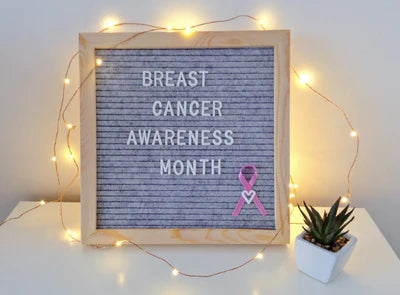
Lifestyle Changes to Reduce your Risk of Breast Cancer
06.02.2024
While there is no guaranteed way of preventing breast cancer, the good news is that there are several things you can do to try to lower your likelihood of developing the disease. In fact, 30% of breast cancer cases are preventable by making some relatively simple changes to your lifestyle.
We, at Mediworld, are joining the global community this month to promote awareness and support in the fight against breast cancer. Despite the fact that breast cancer is one of the most common types of cancer, there are some straightforward actions you can take to minimise your risk.
Maintain a Healthy Weight
If you’re overweight or obese, your risk of breast cancer increases. The more weight you gain, the greater your risk becomes.
For women, after menopause, your estrogen levels will largely be sourced from fat tissue in your body. More fat tissue equals more estrogen and insulin. Higher estrogen and insulin levels after menopause, sadly, lead to a raised risk of developing breast cancer.
Losing even a small amount of weight can help to lower your risk, as well as bringing other great health benefits.
Keep Physically Active
Studies have shown that regular physical activity, of at least 150-300 minutes of moderate exercise per week, can actively reduce your risk of breast cancer.
What is moderate exercise? A brisk walk, mopping the floor or washing the car, taking the stairs instead of the lift, swimming or gently cycling all constitute moderate exercise. If you can talk in short sentences while doing the activity but would struggle to sing, for example, you are probably taking part in moderate exercise.
Otherwise, 75-150 minutes of intense exercise or activity is also recommended perhaps for the fitter people amongst us. Speaking during intense activities would be much more difficult - so you might be running, doing aerobics, lifting weights or taking a boxing class for example.
Whatever activity you incorporate you should also aim to limit sedentary behavior such as sitting, lying down, watching TV, and other forms of screen-based entertainment. This is especially important if you spend most of your working day sitting. The bottom line is you need to move around more throughout the day to help reduce your risk of breast cancer and many other health and lifestyle limiting conditions.
Reduce Alcohol and Tobacco
It goes without saying that quitting smoking is good for your health. Smokers are exposing themselves (and others) to toxic chemicals that have been connected with the development of cancer, including breast cancer. In addition, smokers have been found to have a much-reduced response to breast cancer treatments like radiotherapy and post surgery recovery.
Alcohol also increases the risk of breast cancer in women and heavy drinking may increase the risk in men. In the UK it is estimated that 8% (around 4,400) of female breast cancer cases are linked to alcohol consumption.
All alcoholic drinks - wine, beer or spirits - contain ethanol, which is the chemical that causes the harm and risk associated with alcohol-related breast cancer. Ethanol increases the density of the breasts which is a key factor in increased breast cancer risk.
Reducing your alcohol intake to zero might be difficult for some, but drinking in very light moderation and never in binges will go some way to reducing your risk if you have previously been a heavier drinker.
Check your breasts regularly
Women should be checking their own breasts once a month to get to know what is normal for them, and to help identify when something unusual, a lump or discoloration for example, might have appeared. Women should perform a breast examination 7-10 days after their menstrual period starts, when their breasts are the least tender and lumpy. For women who are no longer menstruating, they should pick a day of the month to check themselves and make it a regular date in their diary.
During your check, you want to look out for any changes such as dimpling or puckering of the breast, inversion, redness or scaliness of the nipple, discharge from the nipple and/or any palpable lumps you might feel.
If you do discover a persistent lump in your breast or any changes you should immediately have it checked out by your GP who will be able to send you for a further, specialist examination or mammogram. Thankfully 8 out of 10 lumps are benign but every one of them should be checked, regardless.
Mammograms - In the UK women between the ages of 50 and 71 will be invited to have a mammogram every 3 years. Keeping up with this screening is an incredibly important way of ensuring that your breasts are checked for cancer risk factors, and for identifying any cancerous cells that may grow early which will have a better chance of being successfully treated.
If you have been identified as having a higher risk of breast cancer, say if a close family member has had the disease, you may well be on a screening programme from an earlier age. You may want to consult your GP to discuss this if you have any concerns.
Need more help? We're always here to help so get in touch today.
For all your Medical and Homecare supplies give us a call at Mediworld.
We have over 40 years experience in medical, surgical, mobility and home health supplies and we're always on hand to chat if you need support or advice and don't forget to read our other great health blogs!
October 2022
Learn More Now

